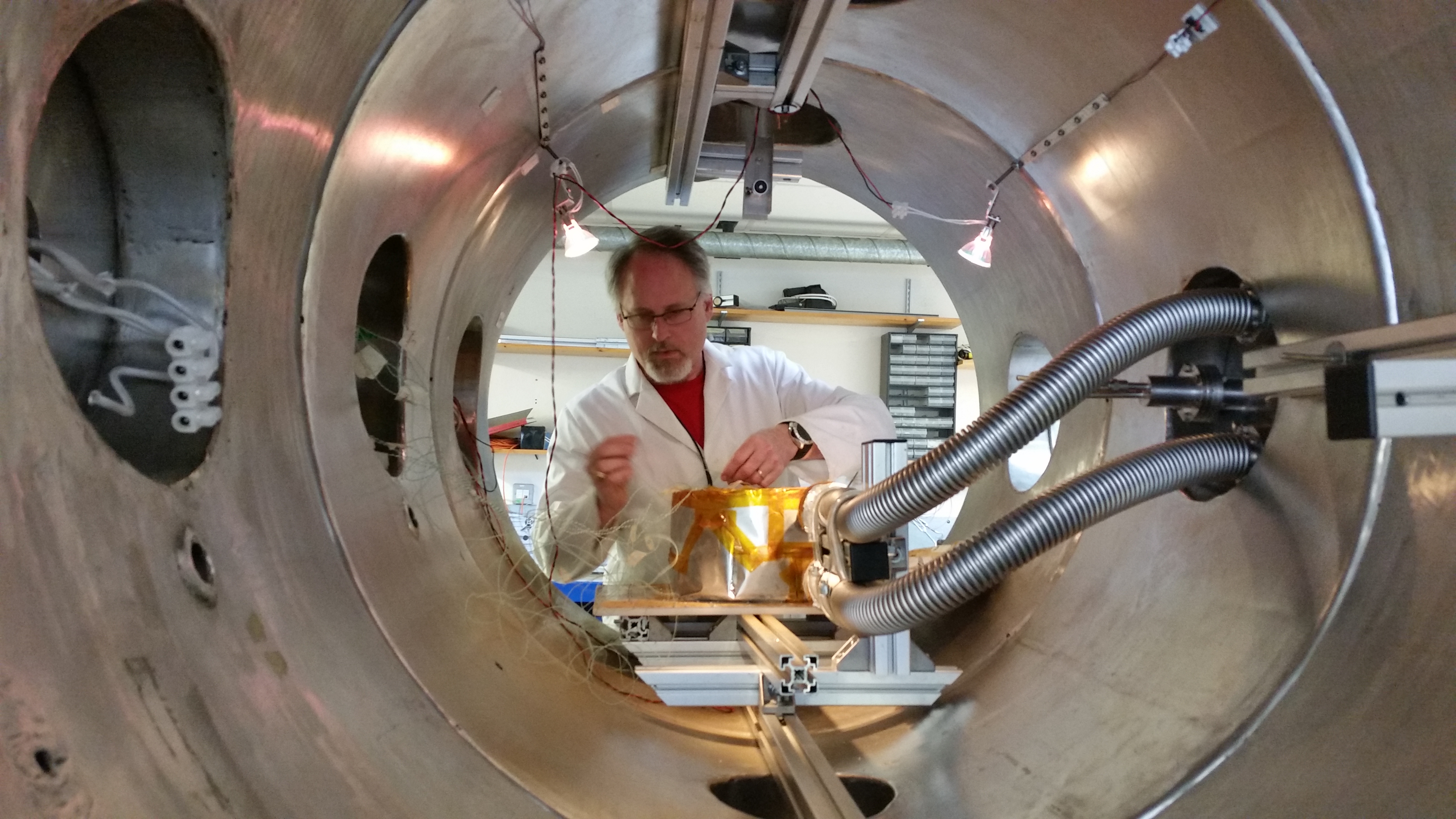
FAYETTEVILLE, Ark. – The gullies of Mars have fascinated scientists since they were first identified through high-definition images transmitted to Earth by the Mars Global Surveyor in the late 1990s.
“On Earth, gullies are formed by erosion due to water flow,” said Matthew Sylvest, a doctoral candidate in the Arkansas Center for Space and Planetary Sciences at the University of Arkansas. “Under conditions on Mars, water can’t exist in its liquid form – at least not in quantities to erode and form those features. So the question becomes: If it isn’t water, what could it be that is making this happen?”
Sylvest is investigating the potential role of dry ice in the creation of the gullies on Mars. Dry ice – the solid form of carbon dioxide – exists on the Martian surface, and carbon dioxide constitutes more than 85 percent of the planet’s atmosphere.
Sylvest recently returned from the Open University in England, where, as a fellow of the U of A’s Roy and Christine Sturgis International Honors Program, he worked with a research group to develop experimental planetary surface simulations.
“Plenty of people have begun supposing this is carbon dioxide frost causing the surface to move, but nobody had done a laboratory simulation to see if that could really happen,” Sylvest said. “This opportunity at the Open University was very special. They had the facilities and a group of people that represent the cutting edge of experimental planetary surface simulations. We built an apparatus and the process to see if dry ice would move the simulated Martian soil. We discovered that it does, and at reduced atmospheric pressure very surprisingly and dramatically.”
The next step, Sylvest said, is to analyze the results and attempt to explain why the dry ice moves the soil.
“There are quite a few parameters that could be affecting this to varying degrees,” he said. “I’m looking forward to getting more data and looking at the mechanisms up close and understand what makes that work. The fact that we see dry ice move the soil, we’re not in a position to say that’s what caused the gullies, just that we’ve shown we can’t rule it out.”
Sylvest is a Doctoral Academy Fellow conducting research in the Arkansas Center for Space and Planetary Sciences at the U of A. His work at the Open University was funded through a Roy and Christine Sturgis International Honors Fellowship, which supports undergraduate honors and graduate students in the J. William Fulbright College of Arts and Sciences with creative international learning opportunities.
Sylvest is a graduate of Texas A&M University, where he earned a bachelor’s degree in mechanical engineering, with a focus on thermo and fluid dynamics. After serving in the U.S. Navy Civil Engineer Corps, he returned to Texas A&M to study computational fluid dynamics.
The Arkansas Center for Space and Planetary Sciences, founded in 2000, is an interdisciplinary research institute at the University of Arkansas with 18 graduate students and nearly $3 million in awarded grants.
Contacts
Matthew Sylvest, doctoral student
Arkansas Center for Space and Planetary Sciences
479-575-7625, msylvest@uark.edu
Chris Branam, research communications writer/editor
University Relations
479-575-4737,
cwbranam@uark.edu